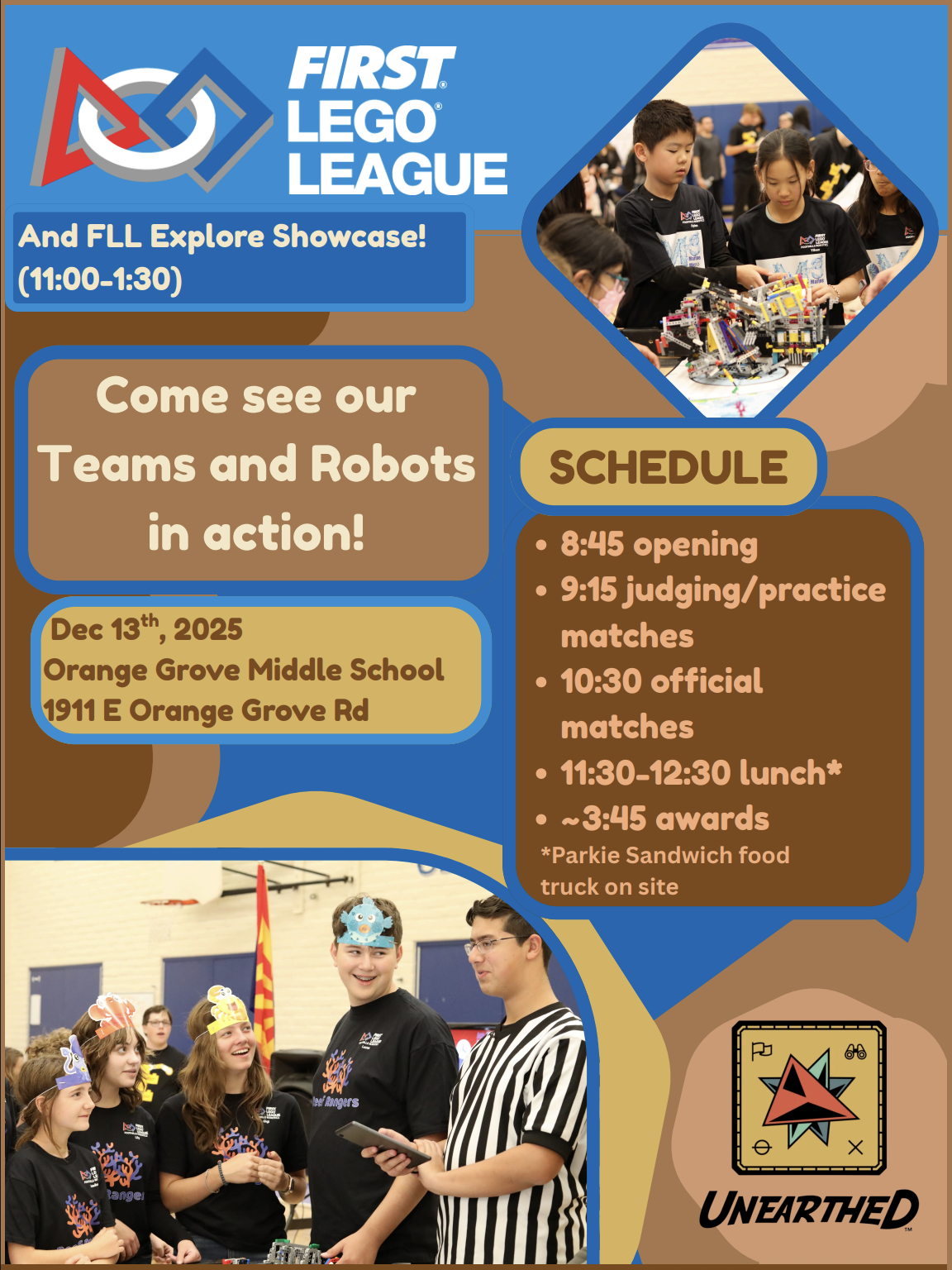December 11, 2025
You're Invited: FIRST Lego League Regional Tournament & FLL Explore Showcase at OGMS this Saturday
Dig into robots, teamwork, and innovation THIS SATURDAY at Orange Grove Middle School! Join us for the FIRST LEGO League UNEARTHED regional tournament featuring talented teams from across Southern ...
December 7, 2025
The Sunday Scoop
The Sunday Scoop FFO Weekly Newsletter December 7, 2025 Grad Night Reminders Grad Night is the be...
December 3, 2025
Encore! Norm Testa Is Back at CFHS
After retiring in 2021, longtime Theatre Arts and CTE Stagecraft teacher Norm Testa has returned to Catalina Foothills High School as scene shop foreman, working closely with theatre director Amy B...


 Additional settings for Safari Browser.
Additional settings for Safari Browser.



_1746828570.png)





